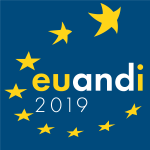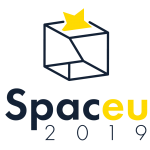Via Giovanni Boccaccio
121, 50133 Firenze FI
Italy

 European Parliament (EP) elections in May 2019 come at a critical time in the evolution of the EU. They were supposed to be the first elections after the anticipated departure of the UK, before the failed ratification of a withdrawal agreement imposed that the UK, too, must hold European elections. They also come at a time when divergence on many issues characterise member state relations, and wider global developments weigh heavily on Europe with the return of hard geopolitics and efforts to undermine the global multilateral order. The election results are expected to produce a highly fragmented Parliament, with the long-dominant centre-left and centre-right blocs unable to form a coalition by themselves, therefore assigning greater influence to smaller players such as the Liberals, Greens and populists. Eurosceptics are expected to win a third of the Parliament’s seats, reflecting the global rise in nationalism. As an international hub of high quality research and reflection on the European Union, the European Governance and Politics Programme has contributed to the build-up to the European elections with a two-pillar project: euandi2019, an online Voting Advice Application allowing citizens to match their policy preferences with the positions of the political parties running for EP elections in all 28 Member States, and spaceu2019, an interactive database informing users on their electoral rights and to allowing them to compare the conditions and requirements for voting in their country of residence and citizenship.
European Parliament (EP) elections in May 2019 come at a critical time in the evolution of the EU. They were supposed to be the first elections after the anticipated departure of the UK, before the failed ratification of a withdrawal agreement imposed that the UK, too, must hold European elections. They also come at a time when divergence on many issues characterise member state relations, and wider global developments weigh heavily on Europe with the return of hard geopolitics and efforts to undermine the global multilateral order. The election results are expected to produce a highly fragmented Parliament, with the long-dominant centre-left and centre-right blocs unable to form a coalition by themselves, therefore assigning greater influence to smaller players such as the Liberals, Greens and populists. Eurosceptics are expected to win a third of the Parliament’s seats, reflecting the global rise in nationalism. As an international hub of high quality research and reflection on the European Union, the European Governance and Politics Programme has contributed to the build-up to the European elections with a two-pillar project: euandi2019, an online Voting Advice Application allowing citizens to match their policy preferences with the positions of the political parties running for EP elections in all 28 Member States, and spaceu2019, an interactive database informing users on their electoral rights and to allowing them to compare the conditions and requirements for voting in their country of residence and citizenship.
Speakers:
Prof. Hanspeter Kriesi (EUI – Department of Political and Social Sciences)
Prof. Elias Dinas (EUI – Department of Political and Social Sciences)
Prof. Liesbet Hooghe (UNC -Chapel Hill)
Giorgia Bulli (University of Florence)
Organisers:
Brigid Laffan (EUI – Director of the Robert Schuman Centre for Advanced Studies)
